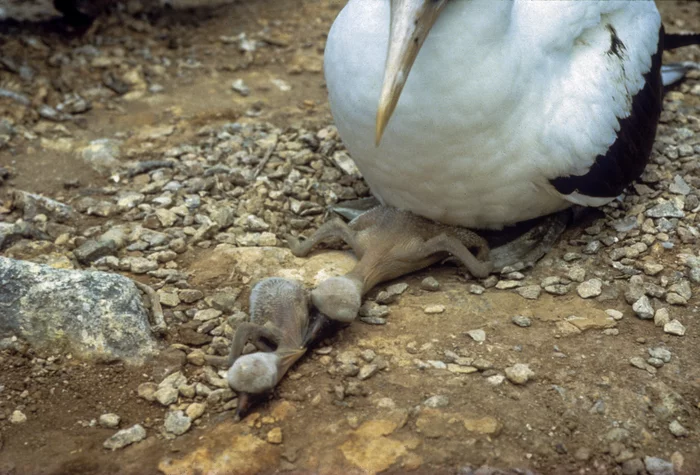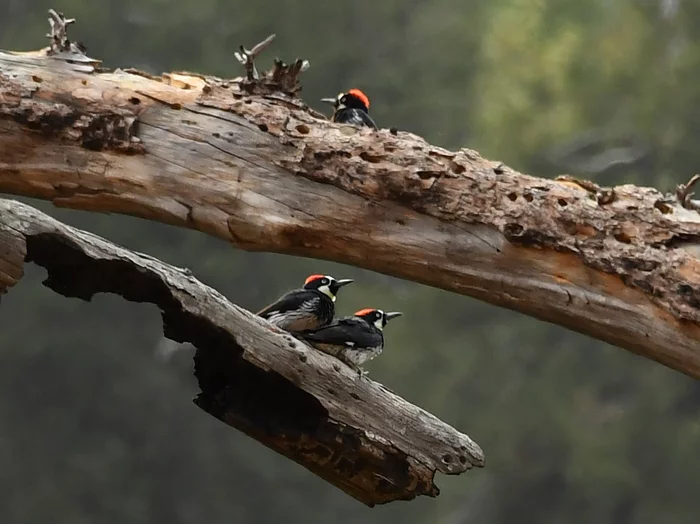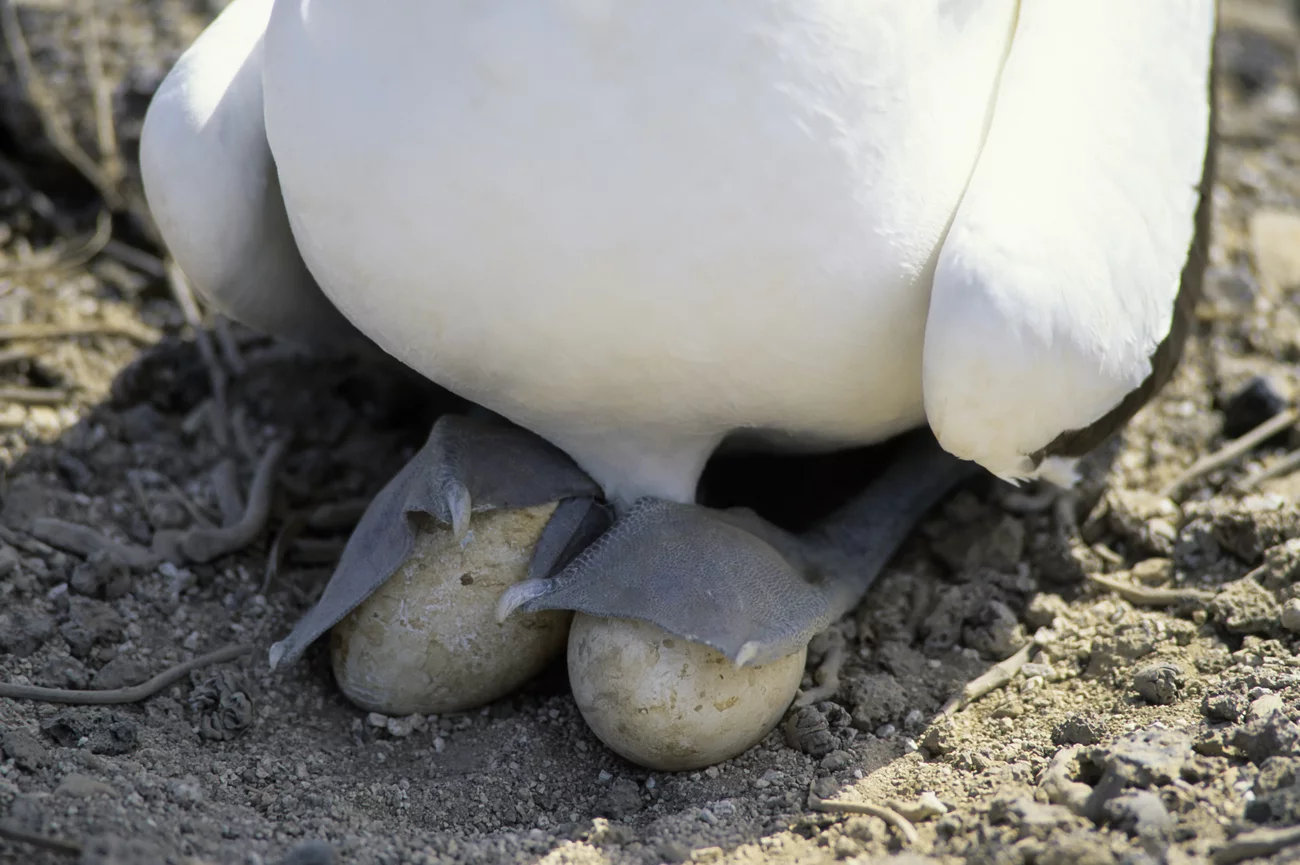Sibling relationships among birds are not only complex but also deeply impactful, sometimes even determining life or death outcomes. While human sibling dynamics can get complicated, the world of birds showcases a range of behaviors that highlight the significance of sibling interactions.
In the case of Nazca boobies, as observed by David Anderson during his research in the Galápagos Islands, sibling rivalry takes a dark turn with the phenomenon of siblicide. Anderson’s encounters with nests housing two chicks, one significantly larger than the other, often ended tragically with the disappearance of the smaller chick shortly after hatching. This act of siblicide, termed “obligate” siblicide, serves as a grim survival strategy for these birds, where the older chick eliminates competition for resources, ensuring its own dominance and survival. Anderson’s findings shed light on the harsh realities of avian sibling relationships, where the struggle for survival begins at birth.

However, not all sibling interactions in the bird world are marked by such brutality. Acorn woodpeckers, found in western North America, exhibit complex social structures characterized by cooperation among siblings. Natasha Hagemeyer’s research on these birds in California unveils a different facet of sibling relationships, one defined by unity and collaboration. Acorn woodpeckers commonly form cooperative groups, with siblings sharing mates and participating in communal child-rearing duties. Hagemeyer’s observations reveal instances where siblings band together to secure territories and establish new homes. These territorial disputes, often intense and risky, highlight the deep bonds and solidarity among siblings striving for survival in a competitive environment.

In the avian realm, sibling relationships play a crucial role in shaping the dynamics of bird communities and influencing the survival of future generations. From the stark brutality of siblicide among Nazca boobies to the remarkable cooperation and unity exhibited by Acorn woodpeckers, the intricate interplay of sibling interactions underscores the multifaceted nature of avian social behavior.
